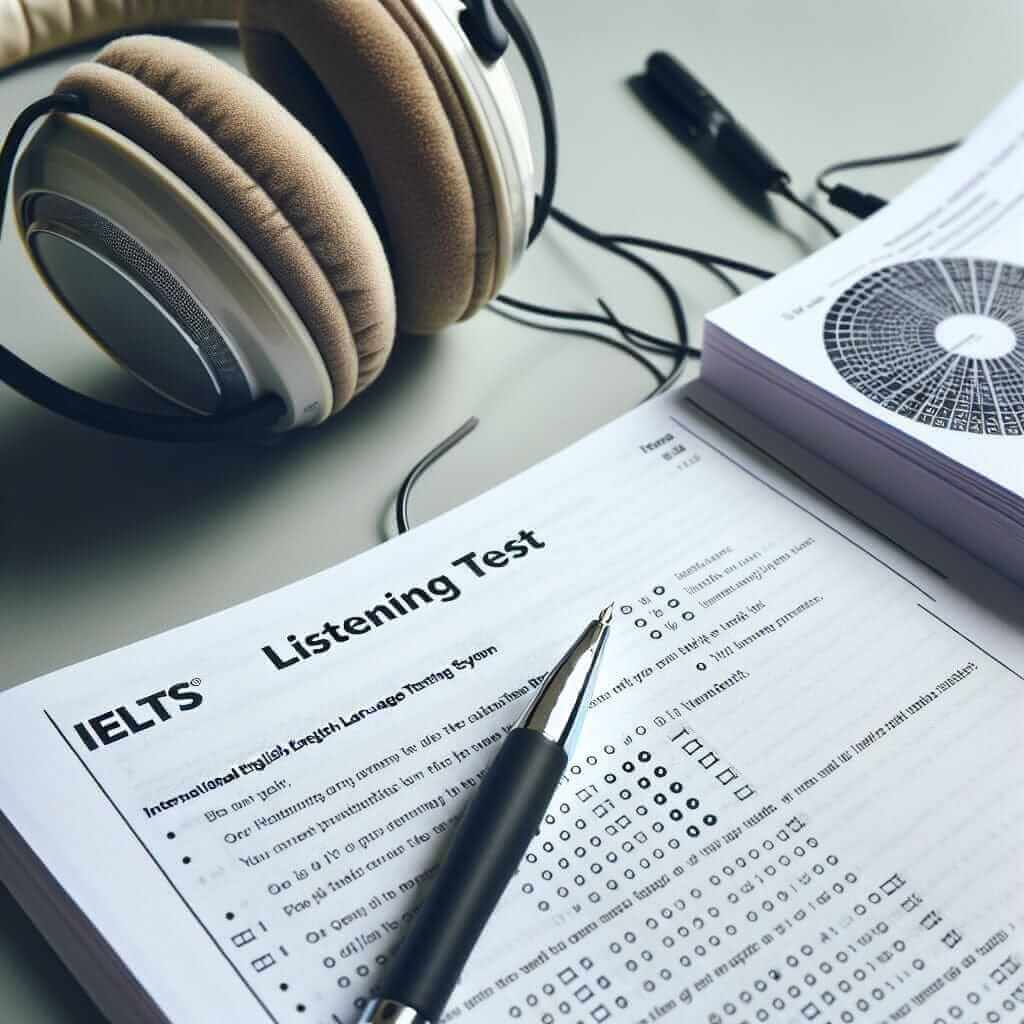As an IELTS instructor with over 20 years of experience, I’ve witnessed countless students grapple with the listening section. Many approach it with anxiety, fearing they won’t understand the accents or the speed of the speech. However, I firmly believe that with the right approach and consistent practice, anyone can achieve a good score in IELTS listening.
Understanding the IELTS Listening Test
The IELTS listening test is designed to assess your ability to understand spoken English in various contexts. It comprises four sections, each with ten questions, covering a range of accents and scenarios:
Section 1:
Usually a conversation between two people in an everyday social setting (e.g., booking a hotel room, inquiring about a course).
Section 2:
A monologue or conversation in an everyday social context (e.g., a museum guide, a welcome speech).
Section 3:
A conversation between up to four people in an educational or training context (e.g., a student tutorial, a presentation).
Section 4:
A monologue on an academic topic (e.g., a university lecture).
Effective Strategies for Success
1. Improve Your Listening Skills
- Active Listening: Don’t just passively hear the audio; focus on understanding the meaning and context.
- Variety of Accents: Familiarize yourself with different English accents by listening to podcasts, watching movies, and engaging in conversations with native speakers.
- Note-Taking Practice: Develop a system for taking effective notes while listening, focusing on keywords and key information.
2. Master the Question Types
Familiarize yourself with the different question types in the IELTS listening test, such as:
- Multiple Choice
- Sentence Completion
- Matching
- Plan, Map, or Diagram Labelling
- Form Completion
- Short-Answer Questions
3. Utilize Practice Tests Effectively
- Simulate Exam Conditions: Practice under timed conditions to get accustomed to the exam pressure.
- Analyze Your Mistakes: After each practice test, carefully analyze your mistakes to identify patterns and areas for improvement.
- Focus on Weaker Areas: Dedicate more time to practicing the question types or scenarios that you find most challenging.

Example from an IELTS Listening Test
Let’s look at an example from a Section 1 dialogue:
You will hear a conversation between a receptionist and a student about a gym membership.
Question: What type of membership does the student choose?
Audio Excerpt:
Receptionist: “We have three membership options: basic, premium, and off-peak.”
Student: “I think the off-peak membership would be best for me since I usually go to the gym after my classes in the afternoon.”
Answer: Off-peak
Explanation: By paying close attention to the student’s response, we can identify the correct answer.
Essential Tips for Exam Day
- Read Instructions Carefully: Before each section begins, take time to read the instructions and questions thoroughly.
- Use the Time Wisely: You will have some time before each recording to preview the questions. Use this time strategically to anticipate potential answers.
- Don’t Get Stuck: If you miss an answer, don’t dwell on it. Move on to the next question to avoid missing further information.
- Check Your Answers: If time permits, review your answers and ensure they are legible and grammatically correct.
Conclusion
Successfully tackling the IELTS listening section requires more than just understanding English. It demands focused practice, strategy, and a deep understanding of the test format. By incorporating the strategies outlined above and dedicating consistent effort, you can enhance your listening skills and boost your confidence to achieve your desired score. Remember, consistent practice is key to unlocking your full potential.